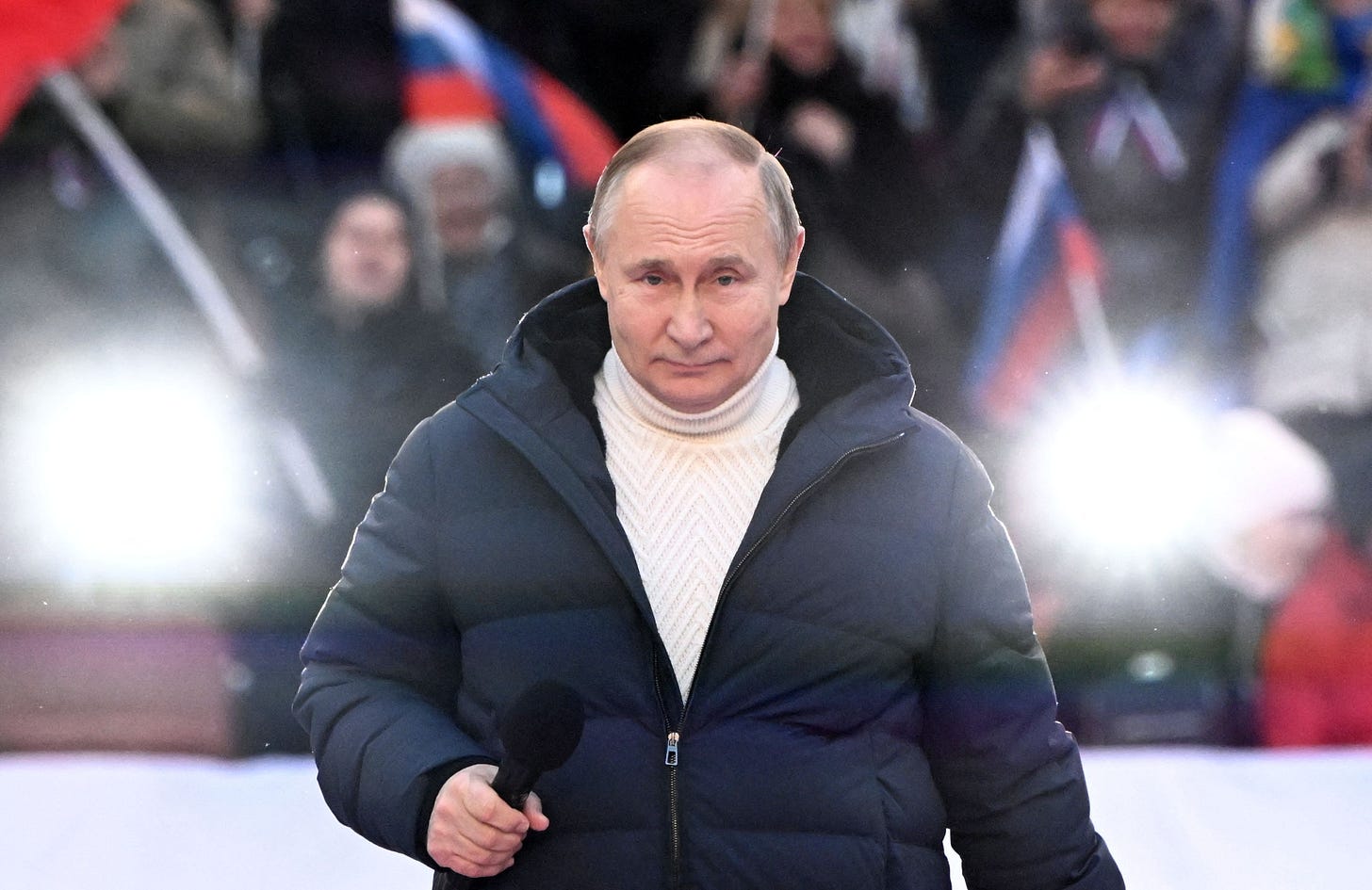
1. Week 3
We’ve now gone three straight weeks without Russia achieving any significant military or political objectives in Ukraine. Instead, Russia has suffered a series of defeats. Their strategic position is not salvageable by conventional means. And Vladimir Putin’s political position may not be, either.
Some things to note:
(1) From Volodymyr Zelensky this morning:
What’s notable about this appeal is that you can only talk like this from a position of strength. Zelensky does not have to posture and pretend to be tough; he does not have to boost morale at home by talking about unleashing hell on evil Russian soldiers. Ukrainian forces have been so successful that he can attack Putin’s regime by going directly to the Russian people and position himself as their ally.
(2) Putin’s ceasefire wishlist is an advertisement of weakness:
He’s broadcasting the fact that NATO weapons are chewing up his forces, that Ukraine is on track to be accepted into Western Europe, and that even his hold on the Donbas region is not likely to survive the invasion.
3. Kremlinology
Last week I noted the arrests in the Fifth Directorate. There’s more turmoil in the upper ranks of Putin’s government.
Arresting generals is not a sign of either stability or strength.
2. Rally Time
Here is another thing that is not a sign strength: Holding a gigantic, heavily-produced war rally:
These are scenes from Moscow today, where Putin held a rally that was half Wrestlemania and half Trump Revenge Tour:
Again, this looks to me like a man telegraphing weakness. If popular opinion was with Putin, he wouldn’t need a massive staged production to simulate public support.
Weak dictators are dangerous dictators. Expect matters to get worse before they get better.
3. Putin’s People
Sam Freedman on Putin’s populist roots:
You may be thinking, so what? Putin was already a dictator and has taken significant additional coercive powers in the past few weeks. Does it make any difference what ordinary people think? But throughout his time in power he has been obsessed with popular opinion, commissioning numerous polls from state pollsters, and reacting swiftly to drops in support. This is for good reason. As Sam Greene and Graeme Robertson wrote in their excellent study of Russian popular opinion “Putin vs The People”, the Russian President has “co-constructed” his rule:
“The whole edifice of Putin’s power is reinforced day after day by the actions and beliefs of millions of Russians….The power generally ascribed to Putin himself actually stems from millions of private citizens willingly acting as unprompted enforcers of Putin’s power in society. This happens in myriad ways. People take part in pro-government shows of strength on the streets and volunteer to fight in Ukraine….More often though, co-construction means reinforcing Putin’s power in more mundane ways, through small-scale social pressure: the boss who insists his employees vote; the school teacher who inculcates uncritical acceptance of Putin’s heroism…These are the real sources of Putin’s power today.”
No surprise then that he has moved so quickly to shut off independent sources of information. But even with his control over the narrative people can see economic effects and see friends in mourning for lost sons, and even some permitted news programmes have acknowledged things haven’t gone quite to plan. In order to understand how this might affect support for Putin and the effect that might have on the war, it’s worth spending some time trying to understand why Putin has been so, genuinely, popular in Russia, what has threatened that popularity the most, and how he has reacted to that. . . .
The first wobble came in 2011. In 2008 Putin had handed over the Presidency to Dmitry Medvedev after his two terms allowed under the constitution, and taken the apparently subordinate post of Prime Minister instead. While no one really doubted that Putin was still in charge, this allowed people to hope that he still intended to follow some rules. But then he announced he would return to the Presidency. This combined with obviously fixed parliamentary elections led to the first serious protests of his time in power, with hundreds of thousands taking to the streets in Moscow.
The first consequence of this was a significant increase in repressive activity by Putin’s forces. On 6th May 2012, the day before his re-inauguration, a final protest was brutally suppressed with multiple arrests and hospitalisations. Speaking out against Putin became increasingly dangerous.
But it also led the Kremlin to shift political strategy. As Greene and Robertson put it:
“[pre-2011] the goal for the most part was to keep politics away from the people and the people away from politics. The challenge from the streets in 2011 changed all that. Now, the Russian state would actively take politics to the people, first in the form of policeman and prison guards, then on television and online. The goal was to transform passive acceptance of Putin’s rule into active participation.”






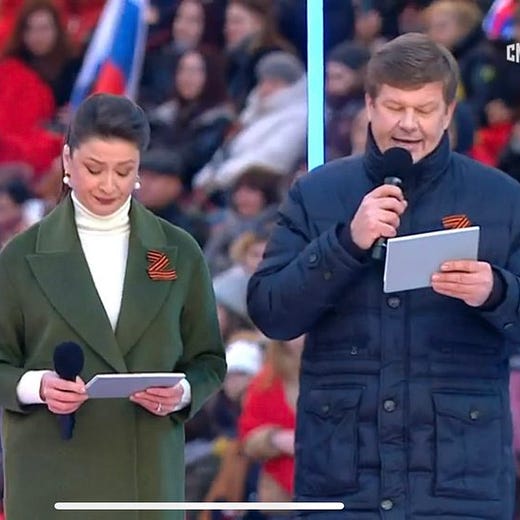
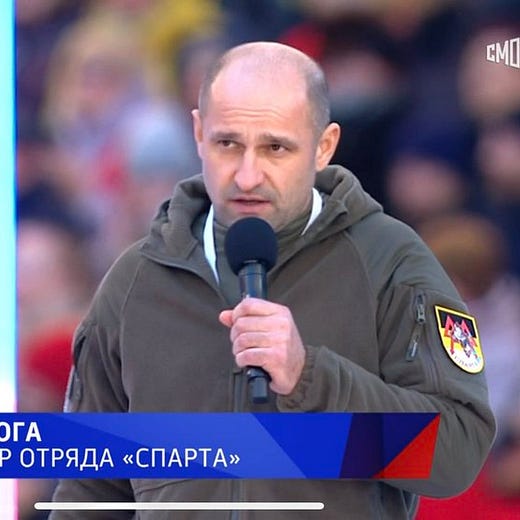

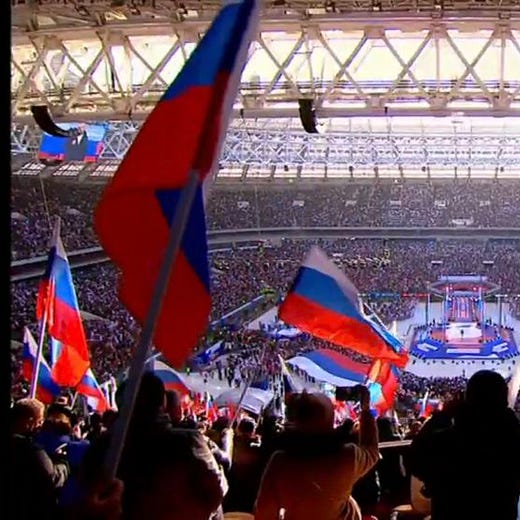
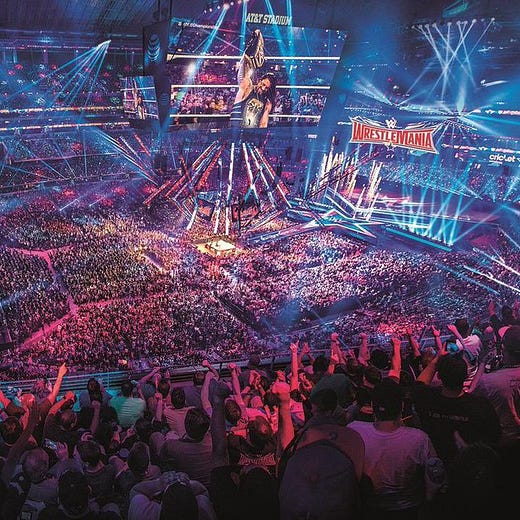
“We want you to love your children more than you fear your government.” That’s an all-timer.
The U.S. should change its constitution so that we can make Zelensky our president after the war the way that big college sports teams steal coaches from smaller ones.
We want you to love your children more than you fear your government.
This is the most brilliant encapsulation I have ever seen of the exact thing a despotism must prevent.